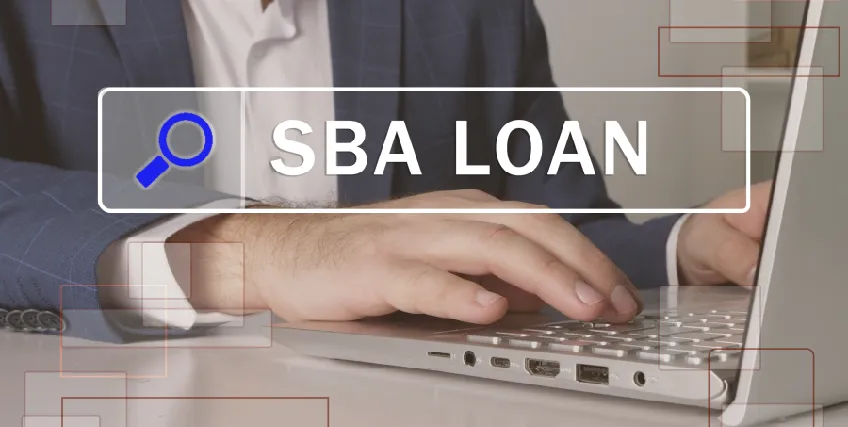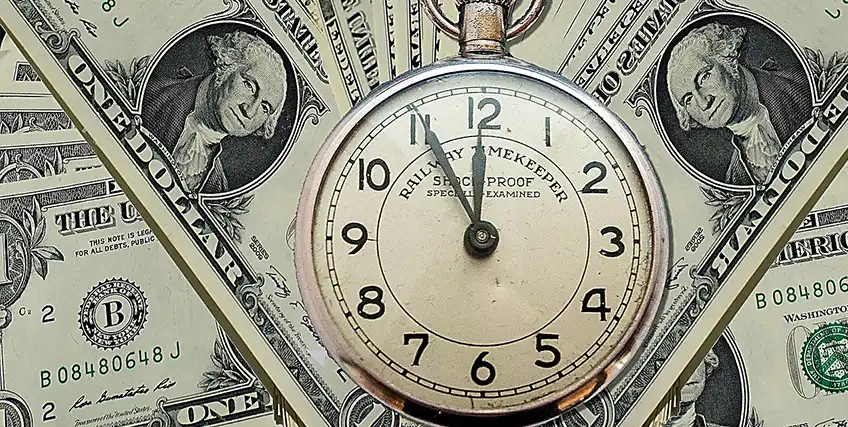The Right Term Length for Your Small Business Loan
October 24, 2025 | Last Updated on: October 24, 2025

When pursuing small business financing, it’s important to understand your business financing options including loans with various term lengths.
A business loan term length can be bucketed into three options with a different amount of time to repay the loans: short-term, medium-term, and long-term loans. The term may also be referred to as maturity term. When you’re considering funding options, you may be presented with different business loan term lengths to select from.
Here’s how business loan term lengths break down into short, medium, and long-term, approximately:
Short Term Loan: <1 year
Medium Term: 1-3 years
Long Term: 3+ years
Short-Term Loans
Short-term loans (<1 year) are suitable for borrowers who have expenses with a limited time horizon. These loans are often funded with less extensive paperwork, and you can gain access to the funds quickly, sometimes within days. The loan amount can vary based on the terms.
Examples of expenses that may be suitable for a short-term loan include:
- Payroll shortfall
- Repair equipment
- Startup costs
- A small office renovation
- Purchasing minor equipment
- One-off emergencies or other short-term business needs
Short-term loans are designed to satisfy an immediate and temporary need and are not meant for long-term capital expenses.
The Advantages of Using a Short-Term Loan
Here are a few benefits of choosing to use a short-term loan program for your business:
- Using lending can help build your personal and business credit score.
- You may have a higher likelihood that you will be approved for a short-term loan rather than a long-term loan.
- Short-term loans often require less paperwork and underwriting time than a long-term loan. You may not need a laundry list of documents like tax returns, bank statements, financial statements with annual revenues, to name a few.
- If the business loan term length is short, you can likely avoid prepayment penalties.
Other Types of Business Loans
Short-Term Bridge Loan
Short-term bridge loans can help you get fast access to cash for your small business. The term bridge refers to bridging a gap between business needs and when cash flows will satisfy the need and pay off the debt.
These loans have a short repayment period which can be as short as a few weeks before which you need to make loan payments. Lenders may require frequent monthly payments or may allow you to pay it back in a lump sum at the end of the term.
Bridge loans can also have higher annual percentage rates, depending on the situation. You can explore bridge loans through traditional banks, credit unions, mortgage lenders, alternative lenders, or online lenders.
Invoice Financing
Invoice financing, sometimes called invoice factoring, is another type of short-term loan where a small business (or any company) is advanced money by a lender before accounts receivable (unpaid invoices) are collected.
For instance, if you are due to be paid $100K by a customer in 3 months, you could receive an advance from an invoice financing company now instead of waiting three months. Your small business pays a fee to the lender and the lender sets out to collect the invoices.
This can help small businesses get short-term cash more quickly than they would if they simply collected accounts receivable on schedule and absolves the company of the trouble of collecting on the invoices.
U.S. Small Business Administration loans
The Small Business Administration (“SBA 7 loans” or “SBA loans") also has caps for certain categories with maximum maturity terms:
- 10 years for equipment
- 10 years of working capital or inventory loan
- 25 years for commercial real estate
Business Credit Card
Business credit cards are another type of financing that may appeal to small business owners. Similar to personal credit cards, business credit cards offer revolving credit and charge no interest if the balance is paid in full every month (within 30 days).
If the balance extends beyond a month, interest will be charged unless there is a promotional 0% APR period. There is also a credit limit, or maximum amount that can be charged on the card, that can vary greatly depending on the size and creditworthiness of a business.
One benefit of business credit cards is that the lender will have little or no oversight about what you use the funds for. Business credit cards should be used to alleviate short-term cash flow issues and are not meant for long-term capital expenses, because their interest rates are quite high.
The repayment schedule for these is typically once per month, and the application process can be simple.
Business Line of Credit
A business line of credit is another option for a short-term loan. Business lines of credit have some similarities to business credit cards except that they provide access to cash instead of having to use a credit card to access the funds. To access a short-term line of credit, you can pull out a specific amount as you need it and you can repay with interest over time or all at once. These funds can be deposited directly into your business bank account.
One benefit of short-term lines of credit, just like a business credit card, is that the lender will have little or no scrutiny about what you use the funds for. Like credit cards, short-term lines of credit should be used to alleviate short-term cash flow issues and are not meant for long-term capital expenses, because their interest rates are quite high.
When To Consider A Longer Business Loan Term Length
Small businesses often choose medium business term loans for expenses such as ordering inventory for a full year, opening a new branch or storefront, standing up a new team quickly or purchasing computer systems for your sales team.
The loan repayment period is typically once or twice a month. Interest rates may range from single digits as far north as 30%+. Medium-term loans may also impose prepayment penalties.
Companies typically take out long-term loans for major construction initiatives, equipment financing, buying other companies, or investing in major machinery that allows their business to run. These loans may require extensive detailed applications, a minimum credit score, large down payments, and collateral.
For example, a lender might impose strict repayment terms or require that your business does not dispose of the machinery it uses to do business. Or the lender might mandate that you always have insurance. Long-term loans often have lower interest rates but can have interest rates anywhere from low single digits for very stable and credit-worthy companies all the way to 30%+ for those with poor credit history. Long-term loans may also impose prepayment penalties.
Final Thoughts
As a small business owner, choosing the proper business loan term length for your small business loan terms is important. These can have important ramifications for your financing options as well as your business's overall health.
Additionally, if interest rates change or your personal credit score improves, you may consider refinancing your business term loan into a better loan agreement.
FAQs about Business Loan Term Lengths
How long are business term loans for?
Loan options can vary, but business loan term lengths can range from less than one year to 30 years. Eligibility requirements will vary based on the term length.
How can I get a long term business loan?
You can get a long term business loan up to 30 years.
What is the average repayment period on a small business loan?
An average repayment period on a small business loan is anywhere from 2 to 10 years.
How do I qualify for short-term business loans?
It may vary by loan provider but you can usually qualify for a short-term business loan by having a solid credit score and having documentation of your business inflows and outflows.




